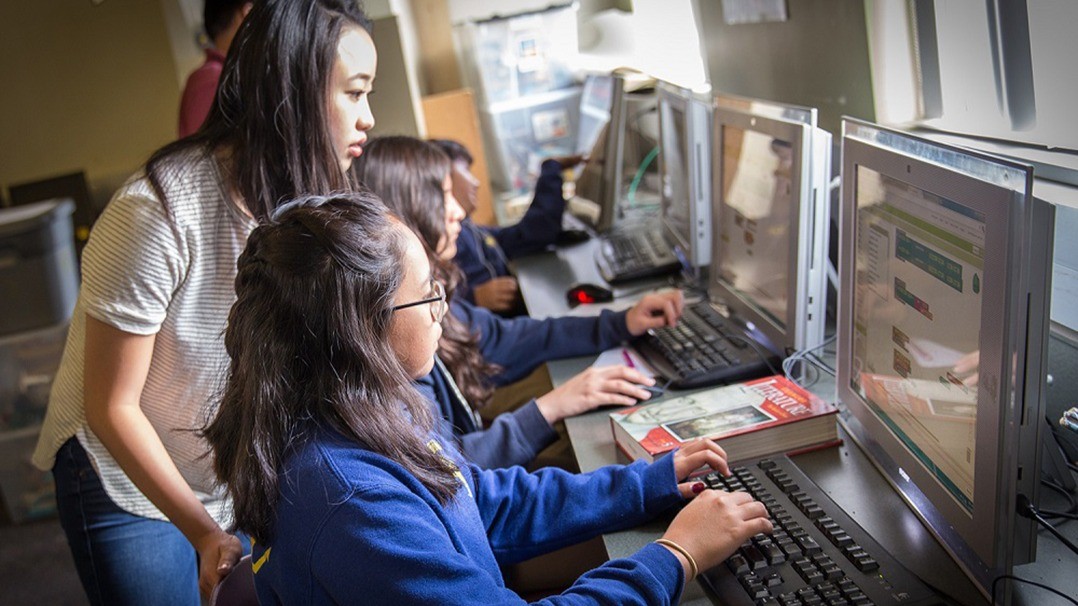
Interpretable AI techniques reveal that K-12 online learning can be divided into three distinct stages with unique predictors of student risk, enabling targeted interventions at optimal points in the semester.
Interpretable AI techniques reveal that K- online learning can be divided into three distinct stages with unique predictors of student risk enabling targeted interventions at optimal points in the semester... continue

High school students show awareness of AI-based plagiarism issues, but harbor misconceptions about manipulating AI-generated content that educators need to address.
High school students show awareness of AI-based plagiarism issues but harbor misconceptions about manipulating AI-generated content that educators need to address Objective This work-in-progress study aimed to understand high school... continue

Large language model-based debugging training significantly boosts K-12 students' programming skills, computational thinking, and self-efficacy through interactive dialogue.
Large language model-based debugging training significantly boosts K- students' programming skills computational thinking and self-efficacy through interactive dialogue Objective The main goal of this study was to evaluate the effectiveness... continue

Hybrid intelligent feedback, which combines human judgment with generative AI capabilities, offers a promising approach to enhance educational feedback by balancing technological efficiency with human contextual understanding and empathy.
Hybrid intelligent feedback which combines human judgment with generative AI capabilities offers a promising approach to enhance educational feedback by balancing technological efficiency with human contextual understanding and empathy Objective... continue

Autoethnographic research reveals that generative AI transforms educational research and practice through a complex interplay of tool adaptation, professional identity shifts, and contradictory organizational norms, requiring educators to orchestrate tech
Autoethnographic research reveals that generative AI transforms educational research and practice through a complex interplay of tool adaptation professional identity shifts and contradictory organizational norms requiring educators to orchestrate technology... continue

Implementing robotics as a compulsory subject in Vietnam's K-12 education has shown significant success in developing students' STEM skills, with male students generally exhibiting stronger problem-solving abilities while female students show promising im
Implementing robotics as a compulsory subject in Vietnam's K- education has shown significant success in developing students' STEM skills with male students generally exhibiting stronger problem-solving abilities while female students... continue

Corobolab successfully integrates software and hardware components to create a comprehensive collaborative learning environment that enhances AI education for K-12 students.
Corobolab successfully integrates software and hardware components to create a comprehensive collaborative learning environment that enhances AI education for K- students Objective The main goal of this study was to... continue

Educational games enhanced with generative AI technologies offer promising opportunities to improve writing skills across the curriculum for students with disabilities, providing personalized learning experiences that increase engagement and academic achi
Educational games enhanced with generative AI technologies offer promising opportunities to improve writing skills across the curriculum for students with disabilities providing personalized learning experiences that increase engagement and academic... continue

Researchers have developed and validated a reliable learning progression with assessment tools to measure elementary students' understanding of AI concepts, addressing a critical gap in K-12 AI education.
Researchers have developed and validated a reliable learning progression with assessment tools to measure elementary students' understanding of AI concepts addressing a critical gap in K- AI education Objective The... continue

Despite technological advancements in AI capabilities for education, current AI implementations in K-12 settings are not creating fundamentally new pedagogical practices but rather following the same principles of previous educational technologies.
Despite technological advancements in AI capabilities for education current AI implementations in K- settings are not creating fundamentally new pedagogical practices but rather following the same principles of previous educational... continue

AI assistance in peer feedback contexts leads students to rely on AI rather than learn from it, potentially undermining student agency in self-regulated learning.
AI assistance in peer feedback contexts leads students to rely on AI rather than learn from it potentially undermining student agency in self-regulated learning Objective The main goal of this... continue

Large language models like ChatGPT improve overall writing quality for college students but create new socioeconomic inequalities in educational benefits, with high-SES students better leveraging these tools to overcome language barriers.
Large language models like ChatGPT improve overall writing quality for college students but create new socioeconomic inequalities in educational benefits with high-SES students better leveraging these tools to overcome language... continue